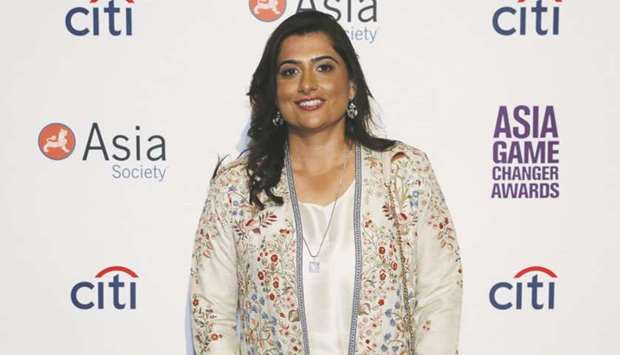Pakistan is no different even though it has produced a fair share of daughters of substance who could hold their heads high for what they came to represent on a global scale. From Fatima Jinnah, the resolute sister of Pakistan’s founder Muhammad Ali Jinnah living a life of self-denial to realise the dream of an independent state, to Benazir Bhutto, the Muslim world’s first female chief executive, and from Malala Yousafzai, the youngest Nobel laureate (just a schoolgirl when she captured the imagination of the world with her courage and activism for the right to education for the girl child) to more recently, Sana Mir, the game changing cricketer of merit, there’s plenty of inspiration.
An inspiring figure in the international women’s game, 33-year-old Mir was contemplating retirement after passing on the baton of leadership in an unprecedented transition of power in Pakistan to a younger teammate only two years ago but mercifully, she is not done yet.
Last week Mir was honoured with the prestigious 2019 Asia Society Game Changers award in New York — the second Pakistani after Malala — in the latest recognition of her stellar work beyond the cricket field that first made her famous.
Founded in 1956 by John D Rockefellar 3rd, the Asia Society is the leading educational organisation dedicated to promoting mutual understanding and strengthening partnerships among peoples, leaders and institutions of Asia and the US in a global context.
The Society’s Game Changers award identifies and honours true leaders who are making a positive contribution to the future of Asia. What makes Sana Mir’s inclusion amongst this year’s honourees special was that it marked the first time since the awards were instituted five years ago that all the awardees were path-breaking females!
The list this year included Japan’s Yuriko Koike, the current and first female governor of Tokyo; China’s Jane Jie Sun, the leader of Ctrip, a $25-bn travel company in China; Sheikha Hoor al-Qasimi from the United Arab Emirates, a pioneer in the art world; Chhaya Sharma, a senior Indian police officer in charge of a team of investigators that solves some of New Delhi’s toughest crimes; and last but not least, Kung Fu Nuns, a group of Buddhist nuns, who have harnessed their mastery of martial arts and are also widely known for their social activism and humanitarian work.
While presenting the award, Asia Society Co-Chairperson Ambassador Chan Heng Chee said: “Sana Mir is first and foremost a true champion in her field, she’s also a champion for millions of girls and young women on the field and off. As a child growing up in Pakistan, Sana Mir saw few other girls — and even fewer women — playing the national sport: cricket. Refusing to let that stop her, Mir joined the country’s fledgling women’s cricket team and went on to become its captain and eventually, (amongst) the top female cricketers in the world”.
The citation underlined her leadership métier thus: “She led (Pakistan) to gold medal wins at the Asia Games in 2010 and 2014. Mir recently became the world’s top-ranked bowler for one-day internationals; and, the top wicket-taker for spinners ever among women in ODIs. She has been decorated with the Pakistani medal of excellence known as the Tamgha-e-Imtiaz, similar to the US Congressional Medal of Honor; won the People’s Choice Award at the Pakistan Sports Awards; and, was recently inducted into the ICC Women’s Committee as one of three female players’ representatives to the preeminent cricket body. And in 2017, she became a member of the Asia 21 Young Leaders network”.
Mir, who was declared the first Pakistani ‘Woman Cricketer of the Year’ in 2013, is also her country’s first female player to take hundred ODI wickets, first to feature in 100 T20s as well as the highest wicket-taker in both formats. She has also been ranked in the Top 20 for nine years and under her captaincy, 8 Pakistani players featured in the Top 20 ODI rankings.
Mir’s succinct acceptance speech truly reflected her selfless conduct and world vision (https://asiasociety.org/video/cricket-star-sana-mir-accepts-asia-game-changer-award). Typically, she eschewed revelling in her glorious hour and instead dedicated it to those standing up for climate change, women helping each other and children of war-torn nations. She did this by poignantly evoking Sir Allama Muhammad Iqbal, Pakistan’s national poet, whose famous verses underlining a universal message of seeking the light of education and staying the course of humanity and compassion most Pakistani children learn at school.
Saying that she was truly humbled and honoured to receive the award, Mir implored the world to comprehend the scale of global issues by seeing it through a child’s eyes.
“My prayer today is that the leaders of today and tomorrow see the world through the lens of the child, the way the child sees the world, so we can safeguard their rights without regard to the colour of their skin, race, religion, or nationality”.
Holding on to her values, Mir has refused to endorse beauty products throughout her career, and famously called out adverts for associating being beautiful with success in sport. The takeaway quote? “Make no mistake: you need strong arms, not smooth arms, on a sports field”.
But her best gift to the cricket-mad nation lies in the generational change she has infused in parents with daughters. “When I started in 2005, people would ask me why I’m doing this, it’s not a women’s game,” Mir recalled recently. “But now when I talk to people they say, ‘We are so proud of the team. We want our daughters to be a part of this team.’”
* The writer is Features Editor. He tweets @kaamyabi


